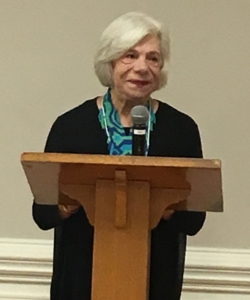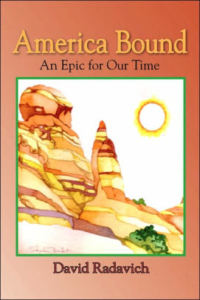Anyone strolling the sidewalks of South Main Street in Lexington, NC, the last Saturday in July must have felt a certain rhythm of community calling from inside the Edward C. Smith Civic Center, where more than 100 writers had gathered that day and the previous evening for the annual North Carolina Writers Conference.
What began in 1950 as a pilgrimage to Manteo to attend The Lost Colony and support writer Paul Green has become an annual event open to all who love the written and recited words of kindred spirits. That spirit was beating like a drum circle this year as Barbara Presnell and her leadership team of Terri Kirby Erickson and June Guralnick served up a program to honor not only the state’s literary traditions but also the innovative movement toward change.
The Conference opened Friday night with a tribute to Richard Walser, a Lexington-born (1908-1988) educator and North Carolina’s foremost chronicler of the state’s literary heritage. The homage to Walser included a showing of the film Their Native Earth, moderated by Jim Clark.
Saturday morning Barbara Presnell welcomed participants by thanking everyone for their help (no one said no, she claims, which speaks to the spirit of North Carolina’s writing kinship). After honoring those authors and poets recently deceased and enticing us to make a visit to the old timey hardware store and candy shop on Main Street, Barbara had the room buzzing with energy. First, two lively and thought-provoking panels.
“Growing into Words: How Our Writing Changes as We Age” with writers Pat Riviere-Seel, Larry Earley, Joe Mills and David Radavich, plus Lynden Harris, a community collaborator who encourages those without a voice—immigrants, death row prisoners—to tell their stories. And what advice did the panelists leave us as we age? Trust the process, serve humanity in our writing, support new writers, take the work more seriously than we take ourselves.
“Writing for Change” (some would call them political poems) with Antionette Kerr, nonprofit leader and media correspondent, as moderator; Diya Abdo, a Jordan native, Guilford professor, and director of Every Campus a Refugee; Joseph Bathanti, Appalachian State professor and writer in residence, recent NC Poet Laureate, and writing liaison to prisoners and Viet Nam veterans; and myself, a writing facilitator with folks without homes and rabble-rouser for racial and environmental justice. All these writers are using their craft to amplify the stories of the marginalized in our midst, or in the words of Tracy K. Smith, to use writing as a means “to unsettle something, to trouble the reader.”
Entertainment at lunch was a brilliant recognition of the Charlotte Writers’ Club and the Charlotte Writers’ Club North, researched and written by talented poet Dede Wilson and presented by David Radavich.
After lunch, there would be no time to sleep off the turkey sandwiches and chocolate desserts. Who could sleep anyway through the next segment of the day’s program: a documentary film by screenwriter and filmmaker Palmer Holton, produced for ESPN Films and entitled When the King Held Court. Picture Elvis Presley’s obsession with racket ball (who knew?) told by those who could report it first hand, interspersed with graphic novel animation and music selected by Amy Winehouse’s drummer. That drum beat was moving us into the future for sure.
The next presentation, “Outside the Box,” was an electric hour with four spoken-word performance poets who had us on the edges of our seats while they recited without falter their creations. Kudos to Jo DeLosSantos, Dasan Ahanu, Ashley Lumpkin, Josephus III and Shane Manier for turning the conference into one that could now be described as 69 years young rather than old.
Dannye Romine Powell Honored
 Beginning in 1977 the NC Writers Conference’s final act has been a banquet honoring a writer of high esteem like Reynolds Price, Fred Chappell, John Ehle, Shelby Stephenson, James Applewhite, Tony Abbott, Ruth Moose, Robert Morgan, Kathryn Stripling Byer and others.
Beginning in 1977 the NC Writers Conference’s final act has been a banquet honoring a writer of high esteem like Reynolds Price, Fred Chappell, John Ehle, Shelby Stephenson, James Applewhite, Tony Abbott, Ruth Moose, Robert Morgan, Kathryn Stripling Byer and others.
This year’s honoree was Charlotte’s own Dannye Romine Powell, author of four books of award-winning poetry, book editor of the Charlotte Observer from 1975-1992, returning in 2013 to the book page after twenty years as the Observer ’s local front columnist. In her book, Parting the Curtains: Interviews with Southern Writers, she explores the creative process with those she had the privilege of interviewing: James Dickey, Eudora Welty, Walker Percy, Lee Smith, and William Styron, among others.
The banquet decor had Dannye written all over it: freshly-ironed white linens on round tables with grass green runners, Mason jars filled with black-eyed Susans, descendants of those originating in poet Susan Laughter Meyers’ garden in Summerville. Four fellow-writers, Kim Church, Bob Anthony, Angela Davis Gardner and Joseph Bathanti serenaded Dannye with accolades: Generous in her book reviews. Passionate for books and their authors. Kind, warm, supportive to fellow writers. Fierce in her poetry, and musical. Funny as hell. Too many to repeat them all here. Bathanti tells it like this: When he was a new graduate and wannabe writer, he barged into Dannye’s office one day to suggest he might help her write reviews. Instead of showing him the door, she showed him a treasure trove of books and hired him on the spot to be one of her readers. That selfless spirit and belief in talent yet untapped is a gift Dannye brings to all North Carolina writers (and wannabes ) who are lucky to have been graced by her presence.
Barbara Conrad is the author of three poetry collections: The Gravity of Color, Wild Plums, and her most recent, There Is a Field (2018). She is also editor of Waiting for Soup, an anthology from her writing group at a center for homeless neighbors. Her poems have appeared in Tar River Poetry, Atlanta Review, Nine Mile, NC Literary Review, Broad River and several anthologies, such as Kakalak and Southern Poetry Anthology. Her poetry ranges from ironic takes on life to hard truths about social injustice.

 The events of September 11, 2001 changed our nation––and the world––forever. This year, in commemoration of the day, Charlotte Lit will host the first-ever dramatic reading of David Radavich’s “America Bound: An Epic for Our Time,” a poetry collection that explores the physical and emotional impacts of our nation’s history since World War II.
The events of September 11, 2001 changed our nation––and the world––forever. This year, in commemoration of the day, Charlotte Lit will host the first-ever dramatic reading of David Radavich’s “America Bound: An Epic for Our Time,” a poetry collection that explores the physical and emotional impacts of our nation’s history since World War II. Beginning in 1977 the NC Writers Conference’s final act has been a banquet honoring a writer of high esteem like Reynolds Price, Fred Chappell, John Ehle, Shelby Stephenson, James Applewhite, Tony Abbott, Ruth Moose, Robert Morgan, Kathryn Stripling Byer and others.
Beginning in 1977 the NC Writers Conference’s final act has been a banquet honoring a writer of high esteem like Reynolds Price, Fred Chappell, John Ehle, Shelby Stephenson, James Applewhite, Tony Abbott, Ruth Moose, Robert Morgan, Kathryn Stripling Byer and others.